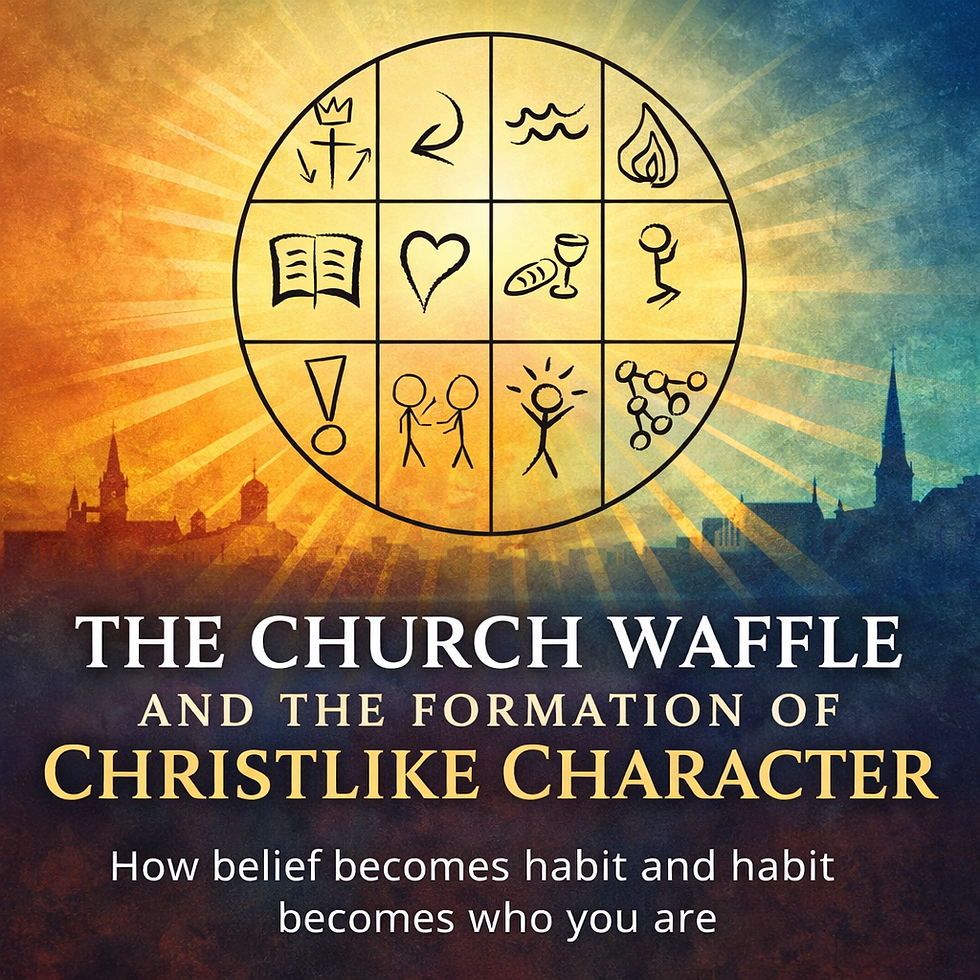Responsibility Is Rooted in History: Why We Must Build, Not Just Deconstruct
- Dave Miller

- Jul 1, 2025
- 3 min read
Updated: Jul 2, 2025
by Dave Miller

In a world that often prizes progress over tradition and innovation over inheritance, the idea of responsibility has become increasingly fragile. We celebrate breaking away, breaking norms, and breaking the mold. But what if true responsibility—lasting, generational, society-shaping responsibility—isn’t about what we break, but what we build from what has been handed down?
Responsibility is not just a personal virtue. It’s a communal, historical, and covenantal inheritance. Without rooting ourselves in something larger than ourselves—our institutions, our identity, and our shared history—we lose the very soil in which responsibility can grow.
The Erosion of Responsibility in a Culture of Progress
When we treat history as a liability rather than a foundation, we undermine our capacity for responsibility. If the past is merely a mistake to be corrected—if we always assume that we’re wiser, more just, and more enlightened than those who came before—then responsibility becomes about the individual’s right to redefine everything rather than a duty to carry something forward.
But responsibility is fundamentally relational. It’s about seeing yourself not as a free agent rewriting the rules, but as a steward within a generational chain. When that link to history is severed, identity becomes unstable. And when identity is unstable, responsibility becomes optional.
Institutions Must Remember Too
This isn’t just true of individuals. Institutions, movements, and collaborative communities are equally vulnerable to forgetting their place in the story. When a church, a nonprofit, a ministry, or a movement begins to believe that it is the point—that correct history began with them or only matters insofar as it supports their agenda—they lose their sense of purpose and responsibility.
An unrooted institution will eventually disintegrate under the weight of its own self-importance. When an organization is no longer tethered to its foundational story—why it exists, who came before, what was entrusted—it becomes directionless. It may still be active, but it will be reactive rather than redemptive.
Healthy movements remember they are not the culmination of the story. They are a continuation of it. They embrace humility. They honor what came before, and they steward what has been given to them for the sake of what comes next.
Identity Cannot Exist Without History
Responsibility is not simply about doing your part—it’s about knowing who you are and where you came from. Identity is formed in relationship to community, story, and legacy. If you cannot locate yourself in a story larger than your own ambitions or grievances, then responsibility will always feel like a burden instead of a privilege.
Those who understand their place in history don’t see themselves as replacing the past. They see themselves as building upon it. They’re not tearing down the old to start from scratch—they’re continuing the work, adapting where necessary, but honoring the structure that gave them form.
The Church and the Covenant: Reproducing with Roots
This truth is especially clear in the life of the church. In disciple-making, church planting, and spiritual leadership, we find that people who are unanchored from the covenantal story of God rarely reproduce lasting fruit. Why? Because spiritual maturity requires rootedness.
If a generation doesn’t know how to honor their spiritual heritage, they won’t know how to cultivate one for their children. They will, perhaps unknowingly, pass down chaos.
Upheaval becomes the soil, and disintegration becomes the pattern. And we’re left wondering why the next generation won’t hold together what we tried to build.
But the answer is clear: you can’t build cohesion on a foundation of disruption. You must build on covenant, on identity, on community—and you must see your responsibility not as something you invented, but something you received and now carry forward.
Cohesion Only Comes Through Covenant
To truly live a responsible life—spiritually, socially, and generationally—you must embrace your role in a covenant community. That means accepting that your life is not the starting point. It is a link in a chain. It is a building block, not a replacement.
Only when we acknowledge the weight of our inheritance can we carry it with conviction. Only when we know our place in the story can we take our responsibility seriously. And only when we’re willing to live within the limits of a given identity—one shaped by faith, history, and community—can we offer something lasting to the generation that comes after us.
Conclusion: Stewardship, Not Reinvention
Responsibility thrives where humility meets history. If we abandon the past as irrelevant or oppressive, we rob ourselves—and our communities—of the very foundations that make responsibility possible. The path forward is not about rejecting where we came from but about owning it, understanding it, and stewarding it.
Whether you are an individual, a leader, a church, or part of a wider movement, the call is the same: don’t forget your story. Don’t pretend you are the point. Know your place. Carry the weight. Pass it on.




Comments